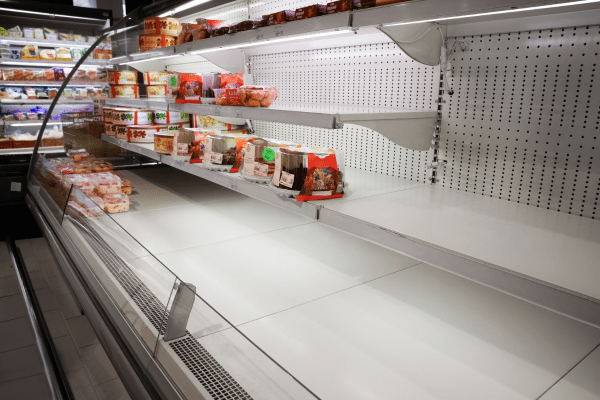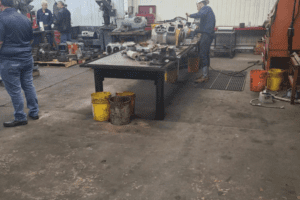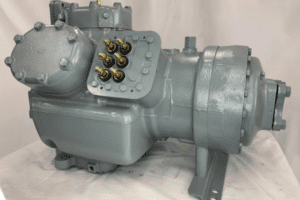If you deal with products whose longevity depends on maintaining a frozen state, then you understand the significance of refrigeration compressors. A compressor is a vital part of a commercial refrigeration unit. It is the heart of the refrigeration unit, and if it is pumping well, your unit is performing to its full potential.
It is important to know your commercial or industrial compressor, how it performs, and whether or not it’s performing its best for your equipment. However, not everyone is capable of evaluating the technicalities of commercial refrigeration compressors. You need a certified commercial compressor repair technician to help you evaluate your unit.
Read on to find out what you should consider when buying a commercial refrigeration compressor.
What is a Compressor?
A compressor is the heart of a cooling system that cycles hot air out of a unit and maintains residual cold air at a temperature below the air of that outside the unit.
Technically, the compressor functions as a pump that increases the pressure of the incoming refrigeration gas. As a result, the volume of the gas drops while its temperature increases. This refrigerant gas is then pushed through a condenser and turned from hot, highly-compressed vapor into liquid form. The liquid then flows through an evaporator, where heat is absorbed via water or airflow, turning the refrigerant into a cold vapor that flows back into the compressor to start all over again.
What to Look for When Buying a Commercial Refrigeration Compressor
Quality is a big deal when it comes to commercial refrigeration compressors. Buying the wrong compressor can leave your plant with huge losses. To avoid being in such a position, following the tips below when looking for a commercial compressor will help tremendously.
Type of Compressor
Different compressors operate differently. Therefore, get a compressor that suits your commercial refrigeration needs. Here are the main types of compressors:
- Reciprocating Compressor
These compressors are often called piston pumps because they use a piston and rod design to move the refrigerant through the system. Some are also referred to as hermetic compressors, which means the encasement is sealed airtight. Semi-hermetic types are accessible, like car engines, and can be field repaired. Reciprocating compressors are reliable and widely used in commercial refrigeration.
- Screw Compressors
Screw compressors are a form of heli-rotor compressors that operate on a screw and motor system. The refrigerant is compressed when two screws mesh to produce extensive amounts of pressure.
Screw compressors are generally used in commercial and industrial refrigeration processes.
- Scroll Compressors
Scroll compressors use an innovative technology that pressurizes the refrigerant using two interwoven scrolls. The two scrolls, one in a rotating motion and one that is fixed, create tiny gaps that are used for compression.
Scroll compressors are made up of less moving parts than hermetic compressors, which limits breakdowns. The compressors are more robust and are better alternatives to some reciprocating compressors, which are not quite as durable.
In terms of overall performance, scroll compressors also appear to outperform reciprocating compressors, especially in energy conservation, with a 10 to 30% margin.
Some of the most reputable brands on the market, like Copeland, Danfoss and Bitzer offer reliable scroll compressors made using the latest tech innovations.
- Inverter Compressors
These are gas compressors that use inverters to generate pressure. The compressor uses a variable-frequency drive to regulate the compressor motor speed. This moderates the cooling capacity to match the required cooling demand.
Energy Conservation
Multiple research studies about the energy efficiency of compressors have been carried out. One preliminary study is looking into the creation of a highly energy-efficient prototype with a significant energy-saving capability than current models.
These studies are part of the ongoing commitment to reduce energy consumption by making more environmentally friendly compressors. Considerable strides have already been made in this area, you shouldn’t have a hard time finding energy-saving alternatives on the market.
Refrigeration Capacity
Consider the refrigeration capacity of your cooling system when shopping for a commercial compressor. Compressors don’t operate in the same range. A compressor may be good but if it does not match your unit’s capacity requirements, it will perform dismally.
Before purchasing a compressor, match the compressor model with the one that is coming out of the unit. Form, fit, power consumption and performance was designed into the original unit and by matching the correct compressor you will maintain the level of performance necessary to do its job years to come.
Noise Level
While sound is a necessary by-product of the operations of a commercial refrigerator, the latest technological innovations have improved the amount of noise produced.
A few studies are looking into suppressing noise using a resonator structure. While total silence in AC and refrigeration technology has not been achieved, some compressor models on the market produce minimal noise.
Warranty
Many people do not consider warranties when buying products since they don’t think they will use them. However, warranties do happen. Suppliers that provide warranty policies that cover your compressor for 12 months or longer against defects in workmanship and parts should be considered.
The right commercial refrigeration compressor to buy will depend on your equipment needs. By buying the correct model number for your equipment, with the right warranty will ensure the correct performance for your unit.












